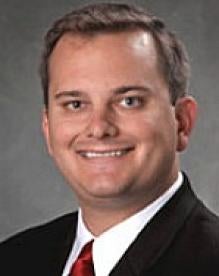The North Carolina Supreme Court issues dozens of opinions each year which address issues that have a substantial impact on the state of the law in North Carolina. Over the course of the year, we have been compiling information regarding the opinions issued by the Supreme Court to provide a better understanding of how the Court works. With three quarters of the year completed, we thought it was an appropriate time to review some of our findings.
Through the end of September, the North Carolina Supreme Court has issued 41 opinions. If the Court continues at its current rate, it will publish 52 opinions in 2013, three fewer than in 2012. The Court has issued 19 opinions in civil cases, 18 opinions in criminal cases, three family law opinions, and one about worker’s compensation. Of the 19 civil opinions, seven address issues relevant to the North Carolina business community.

Bumpers: Whether alleged overcharges for second mortgage loans violate N.C.G.S. § 75-1.1.
Cully’s Motorcross Park: Whether information given by an insurance investigator to police regarding a loss caused by arson should subject the insurer to liability for malicious prosecution and for an unfair and deceptive trade practice; extent of immunity provided to insurer under N.C.G.S. § 58-79-40 and the Noerr-Pennington doctrine.
Grandfather Holding: Materialman’s lien statute; whether a person who had no legal or equitable interest in real property when the services at issue were contracted for, but later purchased the property, can be an owner for purposes of section 44A-8.
HCW Retirement: Whether defendants waived their right to compel arbitration of claims by engaging in discovery not authorized by an arbitrator.
IMT: Enforceability of a privilege tax imposed by the City on companies purportedly engaged in cyber-gambling; whether summary judgment was properly entered for the City on the companies’ claim that the privilege tax violates the N.C. Constitution’s prohibition on unjust and inequitable taxes.
In re Bass: Whether petitioner, which was not the original lender named in a promissory note executed by the borrower, was the holder of the note at the time of default and thus had authority to foreclose on respondent’s property under the accompanying deed of trust.
Micro Captial: Whether a contractual provision requiring defendant to pay one-fourth of the cost of providing heat to premises shared with plaintiff is so vague as to be unenforceable; whether the trial court erred in granting summary judgment for defendant.
Other metrics for this 2013 session:
Of the 41 opinions, 18 opinions were decided per curiam, meaning that the matter was decided without a written opinion or a written opinion was issued without an identified author.
Of the 23 opinions written by an identifiable author. Justice Mark Martin has authored six opinions so far, the most of all the justices. Justices Robert Edmunds and Barbara Jackson have authored five opinions each. Justice Paul Newby has penned four opinions. Chief Justice Sarah Parker and Justices Robin Hudson and Cheri Beasley have each authored one opinion so far this year. Although they have authored relatively few majority opinions, Justice Hudson has authored five dissenting opinions and Justice Beasley has written four dissents and one opinion that concurred in part and dissented in part from the majority opinion.
Once the justices heard a case, they were more likely to reverse the opinion below than to affirm it. Twenty one opinions reversed the opinion below, sixteen affirmed the lower court, and four opinions affirmed the decision below in part and reversed it in part. As is typically the case, the Court unanimously agreed on most of the outcomes, with 25 of the 41 opinions being decided unanimously. In the remaining cases, seven opinions had two dissenting justices, five cases equally divided the members of the court who heard the case (in these cases one justice was recused, leaving the Supreme Court with six voting members), three opinions had one dissenting justice, and one opinion saw the Supreme Court split on a 4-3 basis.
The Court reached a unanimous decisions in five of the seven business cases. In Bumpers and Cully’s Motorcross Park, the Supreme Court split 5-2, with Justices Hudson and Beasley dissented from the majority opinion in Bumpers and dissenting in part from the majority opinion in Cully’s Motorcross Park.
Clients often ask when they can expect the Supreme Court to hand down an opinion. In civil cases, the Court took 317 days to rule once it acquired jurisdiction, and 106 days from the date of oral argument. Business cases took slightly longer to resolve than other civil cases, averaging 376 days after the Court acquired jurisdiction and 111 days after oral argument. The Supreme Court gave the most consideration to criminal matters. On average, the Supreme Court took 552 days to resolve criminal appealson its docket and took 100 days after oral argument to issue an opinion.



 i
i


